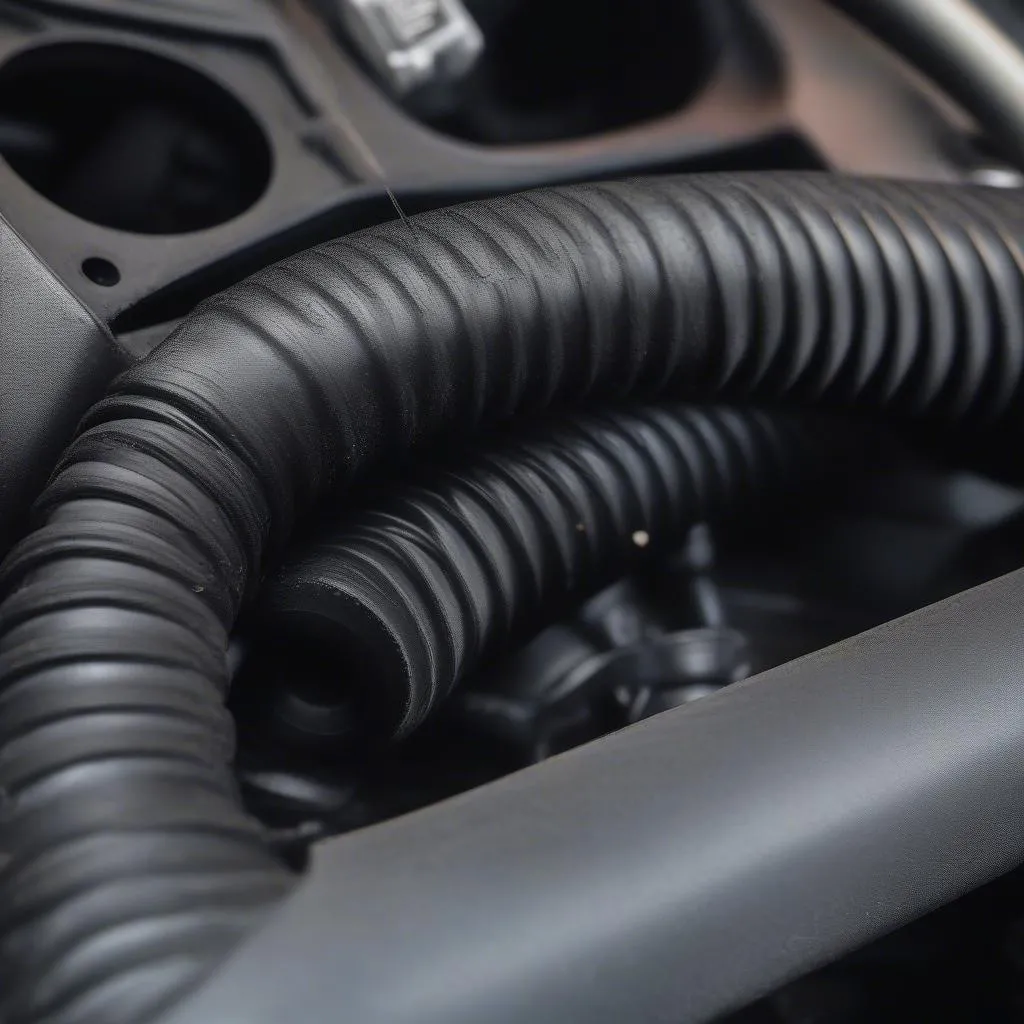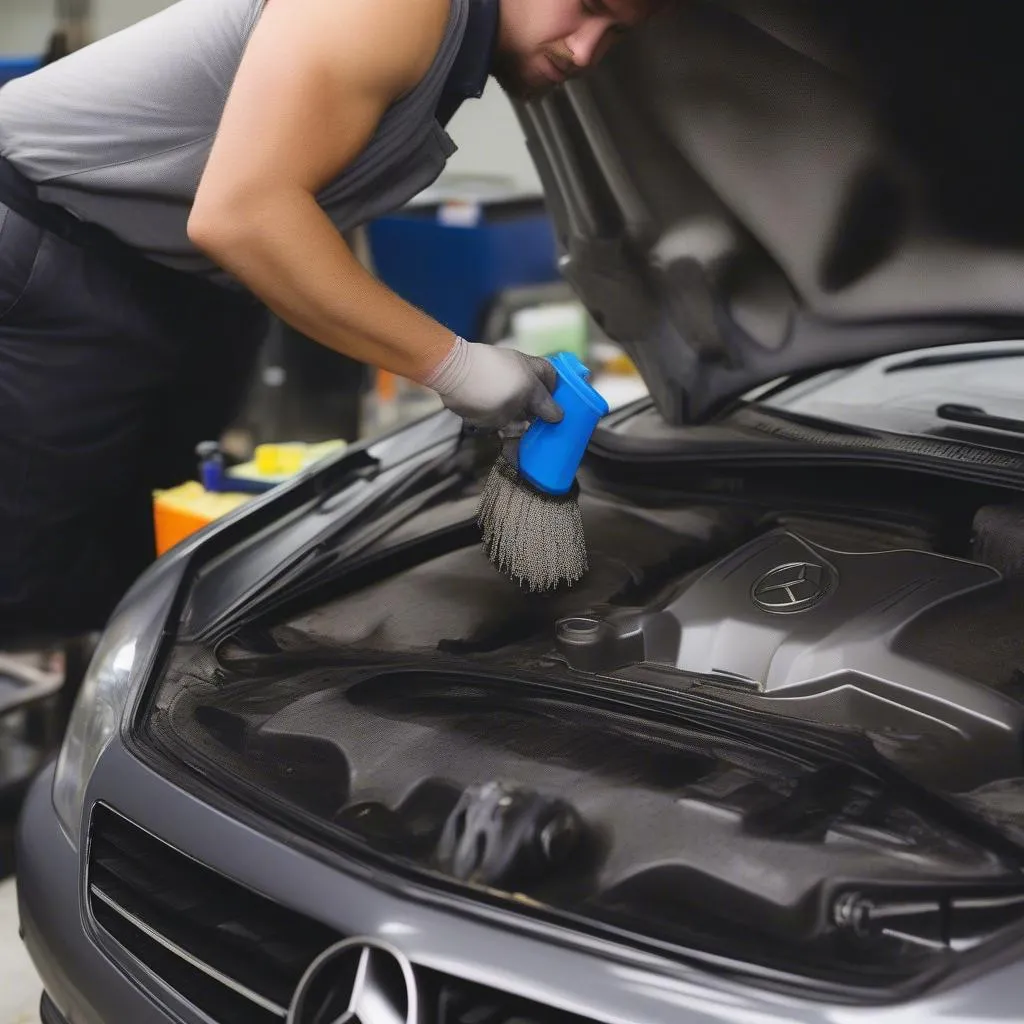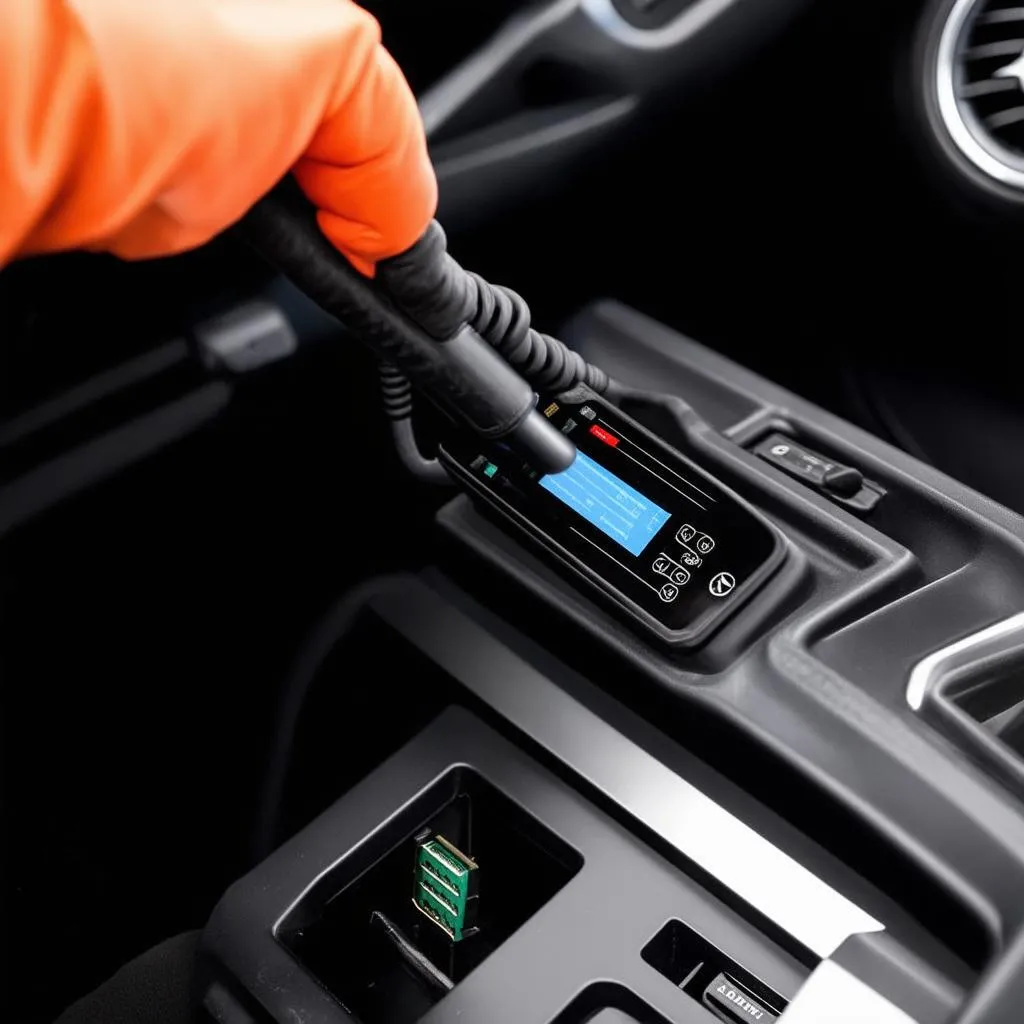A malfunctioning air intake system can significantly impact your Mercedes Benz’s performance, fuel efficiency, and even cause engine damage. If you suspect your Mercedes’ air intake needs attention, this guide is for you. We’ll walk you through identifying common issues, understanding their causes, and fixing them. Let’s get started!
Understanding the Air Intake System
Your Mercedes’ air intake system supplies the engine with the oxygen it needs for combustion. This seemingly simple system comprises several components, including:
- Air Filter: This component traps dust, debris, and other contaminants, preventing them from entering the engine.
- Mass Air Flow (MAF) Sensor: This sensor measures the amount of air entering the engine, allowing the ECU to adjust the fuel-air mixture for optimal combustion.
- Throttle Body: This valve regulates the airflow into the engine based on your accelerator pedal input.
- Intake Manifold: This component distributes the air evenly to each cylinder in the engine.
Common Mercedes Benz Air Intake Problems
Here are some telltale signs that your air intake system might need attention:
- Reduced Engine Power: A clogged air filter or restricted airflow can choke the engine, leading to noticeable power loss.
- Poor Fuel Economy: When the engine doesn’t get enough air, the fuel-air mixture becomes richer, leading to increased fuel consumption.
- Rough Idling or Stalling: A faulty MAF sensor or vacuum leaks can disrupt the engine’s air-fuel ratio, causing rough idling or even stalling.
- Check Engine Light: The check engine light might illuminate due to problems with the MAF sensor, throttle position sensor, or other related components.
- Unusual Engine Noises: Hissing or whistling sounds coming from the engine bay could indicate a vacuum leak in the intake system.
Diagnosing the Problem
Before you start fixing your Mercedes’ air intake, it’s crucial to pinpoint the exact cause of the issue. Here’s what you can do:
- Visual Inspection: Begin by visually inspecting the air intake system for any obvious problems like a disconnected hose, a cracked air intake tube, or a loose clamp.
- Check the Air Filter: A dirty or clogged air filter is a common culprit for air intake issues. Inspect the air filter and replace it if it’s dirty.
- Inspect the MAF Sensor: Carefully remove the MAF sensor and check for dirt or debris. Clean it with a specialized MAF sensor cleaner if necessary.
- Look for Vacuum Leaks: A vacuum leak can disrupt the airflow and cause various performance problems. Use a carburetor cleaner to spray around the intake manifold and hoses while the engine is idling. If the engine speed changes, you likely have a vacuum leak.
Tools and Materials You’ll Need
Gather the following tools and materials before starting the repair:
- Screwdrivers (flat-head and Phillips)
- Socket set
- Pliers
- New air filter
- MAF sensor cleaner
- Replacement hoses or clamps (if needed)
Fixing the Air Intake
Once you’ve identified the issue, follow these general steps to fix your Mercedes’ air intake:
- Replace the Air Filter: If the air filter is dirty or clogged, replace it with a new one. Consult your owner’s manual for the correct air filter type and installation instructions.
- Clean the MAF Sensor: If the MAF sensor is dirty, carefully clean it using a specialized MAF sensor cleaner. Avoid touching the sensor wires.
- Repair Vacuum Leaks: If you find a vacuum leak, replace the damaged hose or tighten the loose clamp. Ensure a tight seal to prevent future leaks.
- Check for Other Issues: If the problem persists after addressing the above issues, it’s best to consult a qualified mechanic for further diagnosis and repair.
 Mercedes Air Intake Hose
Mercedes Air Intake Hose
Frequently Asked Questions
Here are some common questions about Mercedes Benz air intake problems:
Q: Can I drive my Mercedes with a dirty air filter?
A: While you might be able to drive a short distance with a dirty air filter, it’s not recommended. A clogged air filter restricts airflow to the engine, reducing performance and potentially causing damage in the long run.
Q: How often should I replace my Mercedes’ air filter?
A: It’s generally recommended to replace the air filter every 10,000-15,000 miles or at least once a year, depending on your driving conditions. Refer to your owner’s manual for specific recommendations.
Q: Can a faulty MAF sensor cause my Mercedes to fail emissions testing?
A: Yes, a malfunctioning MAF sensor can disrupt the air-fuel ratio, leading to increased emissions and potentially causing your Mercedes to fail emissions testing.
 Mercedes MAF Sensor Cleaning
Mercedes MAF Sensor Cleaning
Need help with your Mercedes? Consider Cardiagtech
CARDIAGTECH offers a range of diagnostic tools and resources for Mercedes Benz vehicles. For more information on specific error codes or troubleshooting guides, you can visit their website at Cardiagtech.com. You can also find helpful resources on fixing other common Mercedes issues, such as turbo lag, emissions codes, and valve stem seal problems.
Conclusion
Addressing air intake issues in your Mercedes Benz is crucial for maintaining optimal engine performance, fuel efficiency, and preventing potential damage. By following the steps outlined in this guide, you can diagnose and fix common air intake problems yourself. However, if you encounter persistent issues or are unsure about any repair procedure, it’s always best to seek professional assistance from a qualified Mercedes-Benz mechanic.

